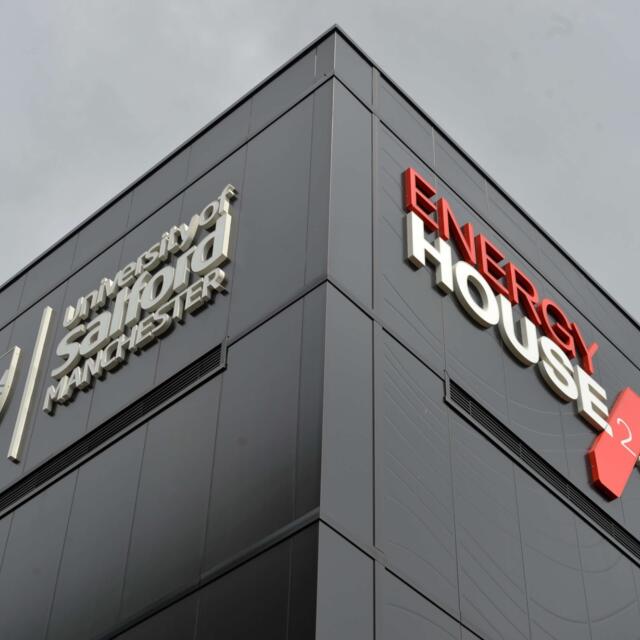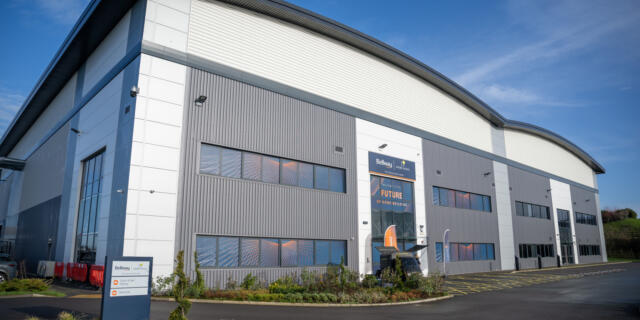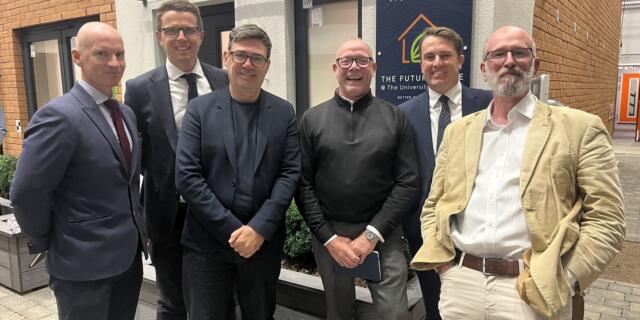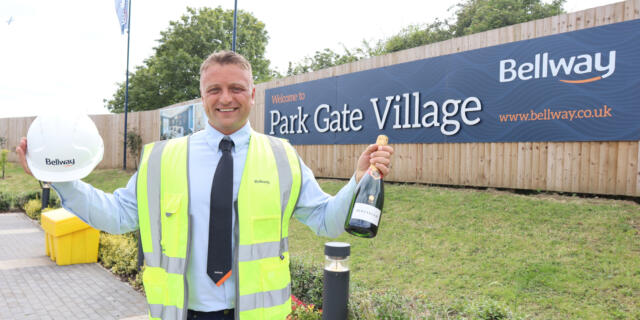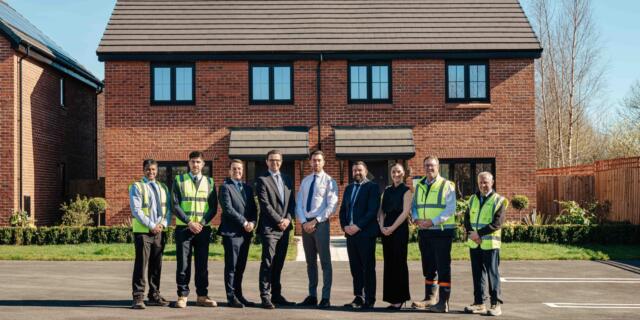Bellway builds ‘The Future Home’ to test zero carbon reduction technology
Bellway has begun building an experimental eco house called ‘The Future Home’ as part of a research project which could influence how we use our homes in the future.
Bellway’s ‘The Future Home’ is being built at The University of Salford’s leading net-zero research facility Energy House 2.0 that has been part funded by the European Regional Development Fund.

The house will test innovations in building materials, the effects of double and triple glazing, storing solar energy, recovering heat from wastewater, and how to make most efficient use of air source heat pumps.
Each of these elements will be monitored in both regular and extreme temperatures, with varying weather conditions simulated inside the specially built chamber.
In building this home, Bellway is taking a lead in the housebuilding industry to test technologies to help meet net zero carbon targets
Jamie Bursnell, Group Technical and Innovations Manager for Bellway, said: “The results of this project have the potential to change how we build homes – and how we live in them.
“In building this home, Bellway is taking a lead in the housebuilding industry to test technologies to help meet net zero carbon targets. However, with many of these innovations, we don’t yet know how they will function for real families in real homes, or what their running costs will be. This is particularly important when energy costs have risen so significantly, and homeowners are being hit heavily in the pockets.
“Energy House 2.0 will enable us to find out how everyone can operate their homes more efficiently and how new technologies can assist our efforts in reducing carbon emissions by building more efficient homes.

“The research will produce reliable data that can help us all to make changes. We will compare the theoretical and real performance of different energy methods, finding out how our habits impact on energy consumption and retention.”
The house will be tested in temperatures as high as 40C and as low as -20C. Weather conditions including wind, snow and solar radiation will be created in the chamber.
Bellway’s Future Home is one of the first projects for Energy House 2.0, which is starting to develop into a hub to help industry address how our homes will need to perform in the future
Energy House 2.0 officially opens later this year and will be working alongside industry investigating how housing design can progress to enable the UK to achieve its net zero carbon emissions targets.
The research facility will contain two environmental chambers that will accommodate four houses and has the ability to replicate over 95% of the world’s climatic conditions.
Professor William Swan, Director of Energy House Labs, said: “Bellway’s Future Home is one of the first projects for Energy House 2.0, which is starting to develop into a hub to help industry address how our homes will need to perform in the future. Over the next year we will be undertaking globally leading research as the University of Salford and its partners start working on projects that solve issues ranging from cost of living and fuel poverty to living in future climates.”

Bellway started work building its energy house last month and the build programme is scheduled to be completed in October.
From then, data on energy efficiency will be collected and analysed by university experts. Part-way through the analysis, Bellway’s house will be retrofitted to upgrade elements of the building. This will include switching double-glazed windows for triple glazing and moving from radiators to underfloor heating.
Sensors located around the house will measure the difference between the energy it generates and the energy it loses in different climates. They will also gauge the comfort of the home, which will be further explored by guests invited to stay there during the project including University of Salford students.
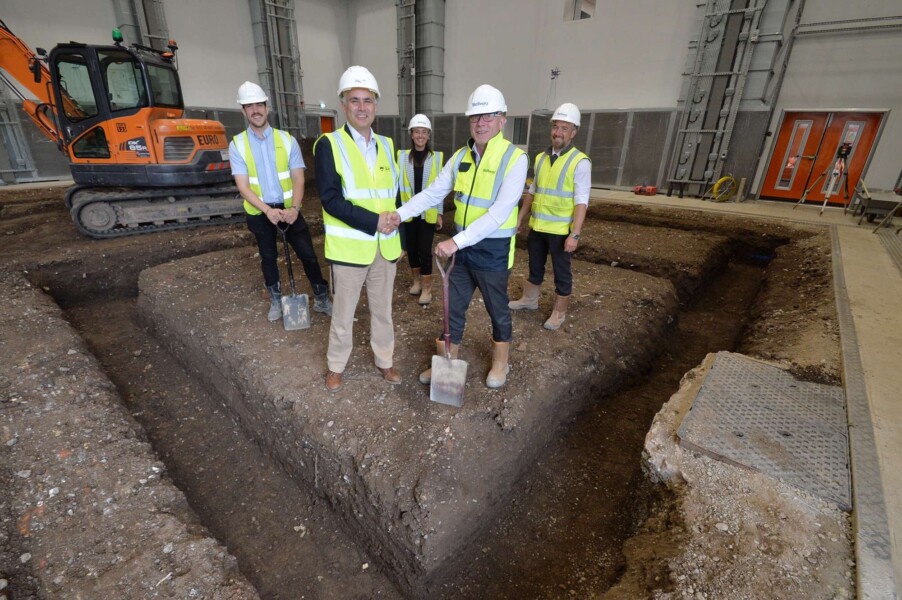
Jamie added: “Many of the technologies we will be testing are due to be in common use in new homes by 2026. This project provides us with the opportunity to test their effectiveness and to create solutions to any challenges we encounter.
“The results will help us to deliver more energy-efficient homes and to advise people on how to make best use of new technology to control energy usage and running costs.”
Dr Richard Fitton, Research Lead at Energy House Labs, added: “The modern house is by its very nature complex, with novel materials, renewable heating systems and interactions between all manner of smart home infrastructure. Our research will help to present data on how all this can work together to deliver homes that are efficient, comfortable and healthy.”
The Energy House 2.0 project is supported by funding from the European Regional Development Fund and the Office for Students.

Businesses across Greater Manchester are being invited to get involved in the project and Bellway is among those who has signed up to the Friends of Energy House 2.0 initiative.
Bellway is working closely with its suppliers and subcontractors on the project, as their insight into the practical installation of new technologies will help to shape the specification of their ‘Future Homes’.
Energy House 2.0 is one of a series of test sites Bellway has set up across the country to work with new energy efficient technologies. Currently, four ‘Future Homes’ are being built in Callerton, Northumberland, which will be available for open sale and homeowners will work with Bellway to monitor energy usage as part of Bellway’s wider carbon reduction strategy.

